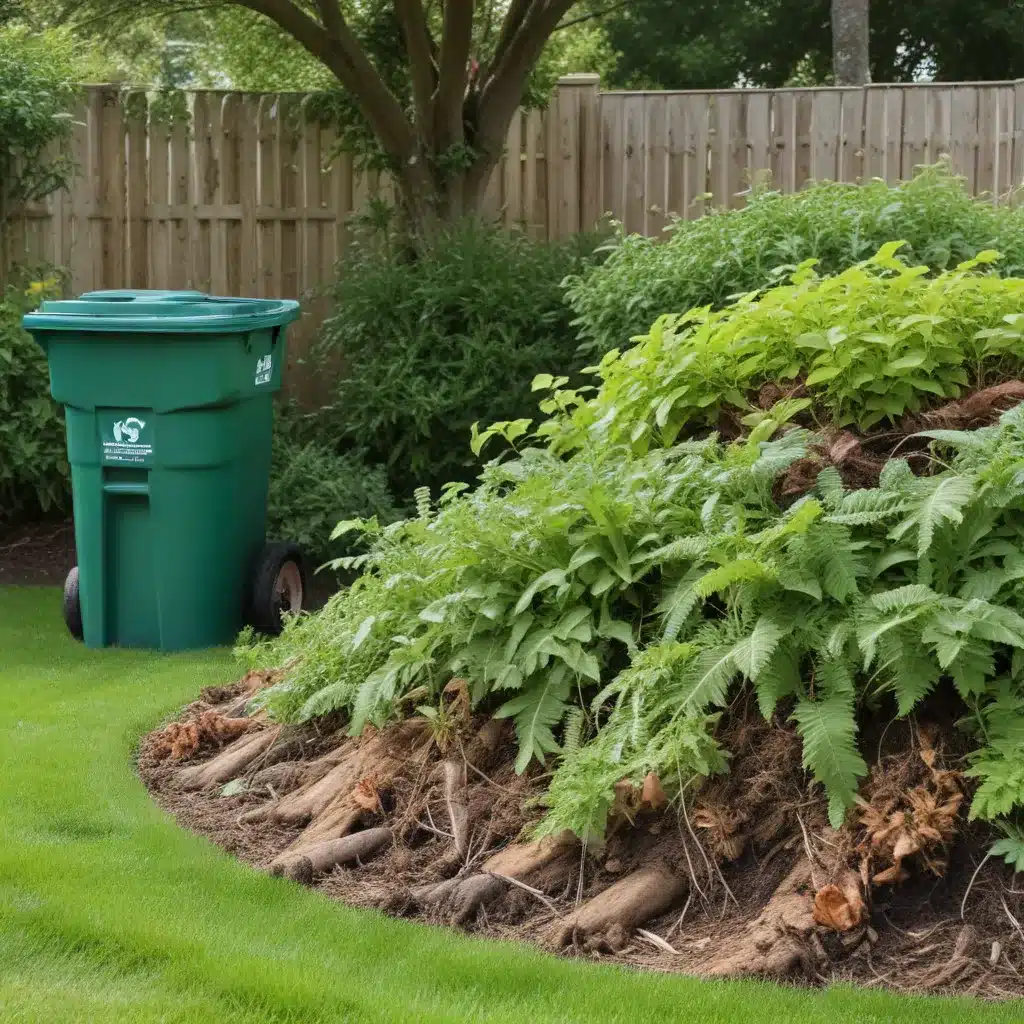
As an experienced junk removal specialist in Philadelphia, I’ve seen it all – from overflowing dumpsters to mountains of discarded furniture and appliances. But one area that often gets overlooked is the management of yard waste. In this article, I’ll share my personal insights and strategies for mastering the art of eco-friendly yard waste management, helping homeowners and businesses in Philadelphia maximize their recycling efforts and minimize their environmental impact.
Understanding the Importance of Yard Waste Management
You might be wondering, “Why is yard waste management such a big deal?” Well, let me tell you, it’s a crucial aspect of responsible waste disposal and environmental sustainability. In Philadelphia, yard waste, including leaves, grass clippings, branches, and other organic materials, makes up a significant portion of the overall waste stream. When this waste ends up in landfills, it can release methane, a potent greenhouse gas that contributes to climate change.
Moreover, yard waste can be a valuable resource when properly managed. By diverting this organic matter from landfills and instead turning it into compost or mulch, we can enrich our local soil, support urban gardening and agriculture, and reduce the need for chemical fertilizers. It’s a win-win for both the environment and our community.
Developing a Comprehensive Yard Waste Management Plan
The key to effective yard waste management is to have a well-thought-out plan in place. Start by assessing the types and volumes of yard waste you typically generate, whether you’re a homeowner or a business with a landscaped property. This information will help you determine the best strategies for handling and processing your waste.
Next, research local regulations and guidelines for yard waste disposal in Philadelphia. Some municipalities may have specific requirements or programs in place, such as curbside collection or drop-off locations for organic materials. By understanding the local landscape, you can ensure that your yard waste management plan aligns with the city’s sustainability initiatives.
Implementing Eco-Friendly Yard Waste Solutions
Once you have a clear understanding of your yard waste and the local regulations, it’s time to put your plan into action. Here are some eco-friendly solutions to consider:
Composting
Composting is one of the most effective ways to manage yard waste. By breaking down organic materials, you can create nutrient-rich soil that can be used to enrich your garden or landscaping. If you have the space, consider setting up a backyard composting system. For those with limited space, look into community composting programs or explore options for curbside or drop-off composting services.
Mulching
Mulching is another excellent way to repurpose your yard waste. By shredding or chopping up leaves, grass clippings, and small branches, you can create a natural mulch that can be spread around your plants and trees. This not only helps retain moisture in the soil but also suppresses weeds and gradually releases nutrients as the mulch decomposes.
Chipping and Shredding
For larger yard waste, such as branches and woody materials, consider investing in a chipper or shredder. These machines can turn these materials into valuable woodchips or mulch that can be used for landscaping, gardening, or as a fuel source for biomass energy production.
Donating or Repurposing
If you have items in good condition, such as working lawn mowers, garden tools, or outdoor furniture, consider donating them to local organizations or community programs. This not only reduces waste but also supports the circular economy by extending the life of these items.
Engaging the Community in Yard Waste Management
Effective yard waste management is not just about individual efforts – it’s about fostering a sense of community responsibility and participation. Here are some ways to get your neighbors, local businesses, and community organizations involved:
Educational Outreach
Host workshops or distribute informational materials to educate the community about the importance of yard waste management and the various eco-friendly solutions available. Encourage residents and businesses to adopt sustainable practices, such as composting, mulching, or utilizing local yard waste collection services.
Collaborative Initiatives
Organize community-wide clean-up days or yard waste collection events. By working together, you can maximize the amount of organic materials diverted from landfills and showcase the power of collective action.
Partnerships with Local Organizations
Collaborate with local environmental groups, gardening clubs, or municipal programs to develop comprehensive yard waste management strategies. These partnerships can unlock access to resources, funding, and expertise that can help expand the reach and impact of your efforts.
Measuring Success and Continuous Improvement
Monitoring the effectiveness of your yard waste management plan is crucial for ensuring its long-term success. Track key metrics, such as the amount of yard waste diverted from landfills, the quantity of compost or mulch produced, and the cost savings or environmental benefits achieved.
Regularly review your plan and make adjustments as needed. Stay informed about the latest innovations and best practices in the industry, and be open to incorporating new technologies or strategies that can further enhance your yard waste management efforts.
Remember, the journey towards sustainable yard waste management is an ongoing one, but with persistence and a commitment to continuous improvement, you can make a real difference in the environmental well-being of your community.
Conclusion
Mastering the art of yard waste management is not just about reducing the amount of waste that ends up in landfills – it’s about fostering a more sustainable and environmentally conscious community. By implementing eco-friendly solutions, engaging your neighbors, and continuously optimizing your strategies, you can make a meaningful impact on the local landscape and contribute to a greener, more resilient Philadelphia.
I encourage you to take a proactive approach to yard waste management, starting today. Remember, small actions can lead to big changes, and together, we can transform our city into a shining example of environmental stewardship. If you need any assistance or have questions, feel free to reach out to our team at https://junkremovalphiladelphia.net/. We’re here to help you navigate the complexities of yard waste management and ensure that your property and community thrive.